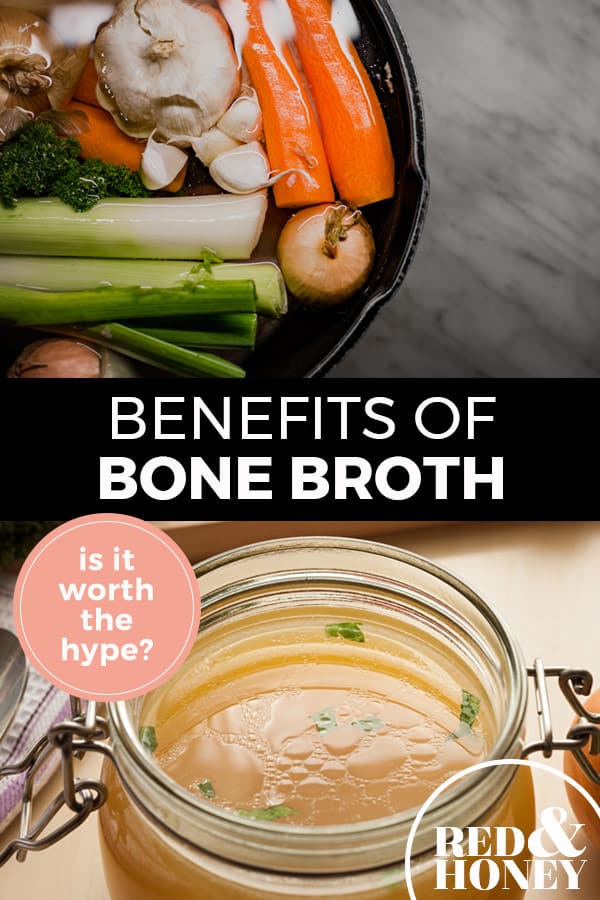
I had no idea I was so trendy and hip.
(Accidentally, of course, but that’s neither here nor there.)
You see, I have been on the bone broth bandwagon for years, having jumped on when I first started my real, whole foods journey seven years ago.
Check out my tutorial: “6 Simple Steps to Nourishing Homemade Bone Broth, or this tutorial for Instant Pot Beef Bone Broth.
While those in the real/traditional foods community have been lauding its benefits for generations, it’s now gaining mainstream popularity as well – there’s even a bone broth take-out window in New York City called Brodo (SO AWESOME!) and if that’s not the height of trendiness, I don’t know what is.
(Side note: I’m curious: would you pay $5 for a cup of authentic bone broth at a take-out window on an NYC sidewalk? I know I would, if the alternative was a fast food mcburger, or something equally disgusting. Of course I can make it for pennies at home, but if I were out and about and needing a quick snack/meal in a pinch? I would love a deeply nourishing, real-food option at my fingertips. Heck yes!)
Worth the Hype?
A South American proverb says that good broth will resurrect the dead, and it’s known fondly as “Jewish penicillin”. But is it just anecdotal evidence from the happy placebo effect of Grandma’s chicken soup when you’re sick?
Nope! This is a bandwagon I can wholeheartedly endorse, my friends, and it’s backed by science, too.
The authors of a scientific study on the possible link between chicken soup and a reduction in cold symptoms, particularly inflammation, made this interesting note:
“The present study provides one piece of evidence that chicken soup contains compounds of potential medical value. No doubt, many other traditional remedies do as well. The evaluation of traditional remedies by rigorous modern methods has the potential to expand our therapeutic armamentarium.”
As understated as it seems, this is actually a pretty significant conclusion for a scientific study on natural remedies. Studies on natural remedies are not very common to begin with, and are often biased in favour of a pharmaceutical approach, especially when the study itself is funded by drug companies. Sad, but true. Thankfully, this study seems quite fair.
One small step for bone broth, a giant leap for mankind… err, something like that…
Aside from this instance of a thumbs-up from the scientific community, the health benefits of bone broth are clear. It is an excellent and foundational part of a regular healthy diet.
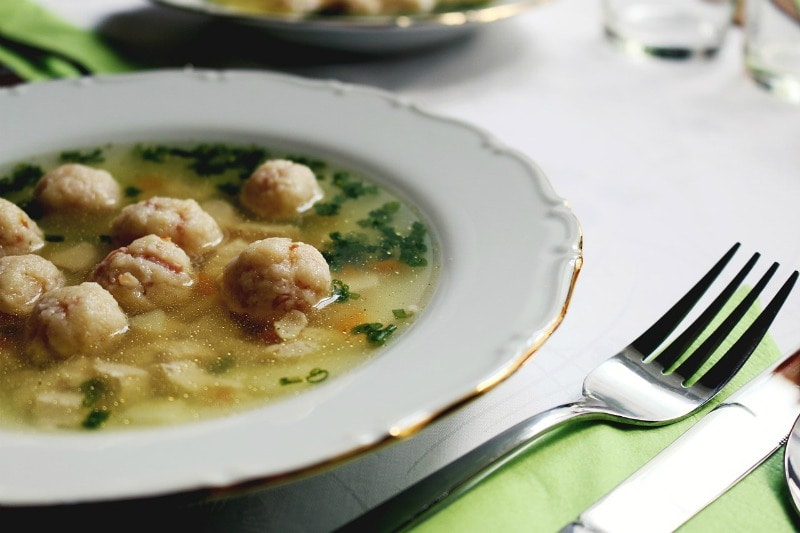
Major Health Benefits of Bone Broth
Homemade bone broth packs a serious nutritional punch. Or maybe it’s more a gentle caress. Or maybe I’m just getting hung up on word specificity again… (It’s an INFP thing. My husband can attest. Ahem.)
Regardless of the metaphor you choose, its “magical powers” are nearly unmatched and it has been highly regarded for generations, in a multitude of cultures. Here’s why:
- It is very gentle on the gut and easy to digest, perfect for leaky gut syndrome that is rampant in our culture to one degree or another, and also for times of illness. (It’s our go-to beverage during tummy upsets, including the flu.)
- Broth contains minerals that are easily absorbed by the body, such as calcium (as good a source as dairy!), magnesium (most people are deficient in our culture), phosphorus, silicon, sulphur, and other trace minerals.
- It contains the essential materials (chondroitin sulphates and glucosamine) from cartilage and tendons that are being sold as supplements for inflammatory conditions like arthritis and joint pain.
- Well-made broth contains gelatin, which is a highly-valued supplement dating back centuries among the ancient Chinese, and the French, in particular.
I particular love this tidbit about gelatin’s benefits to low-income families: “Although gelatin is not a complete protein, containing only the amino acids arginine and glycine in large amounts, it acts as a protein sparer, helping the poor stretch a few morsels of meat into a complete meal.“
- According to Sally Fallon Morell (President of the Weston A. Price Foundation), the French were the “leaders in gelatin research, which continued up to the 1950’s. Gelatin was found to be useful in the treatment of a long list of diseases including peptic ulcers, tuberculosis, diabetes, muscle diseases, infectious diseases, jaundice and cancer.”
- Gelatin also contributes to strong and healthy hair and fingernails.
With all of that being said, I think it’s pretty darn clear that bone broth is an incredibly powerful addition to a healthy diet. You’d be hard-pressed to find a more perfect candidate for superfood status, and I, for one, am thrilled to see people jumping on board.
Do you consume bone broth regularly? What’s your favorite way to use it? If not, what’s holding you back?
(And… I have to know: would you pay $5 for bone broth take-out??)
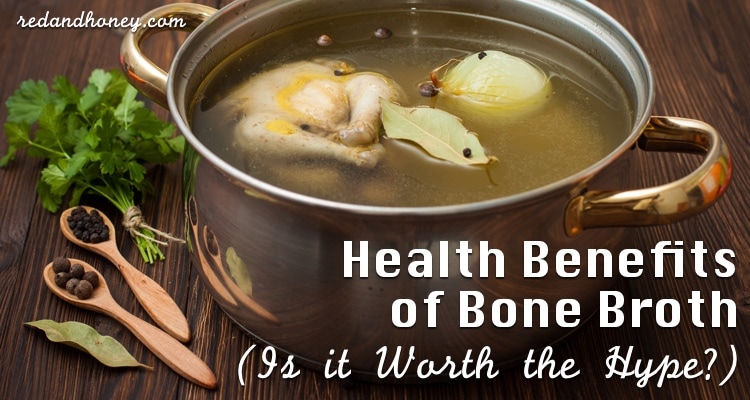

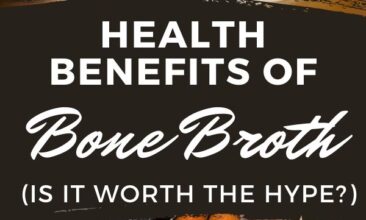


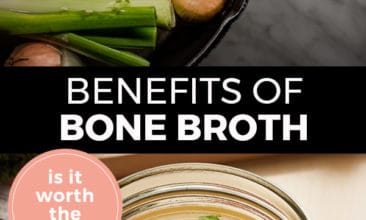

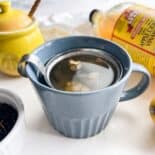





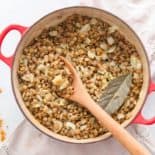


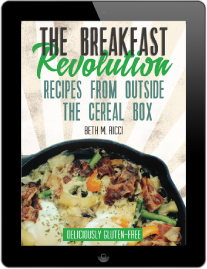
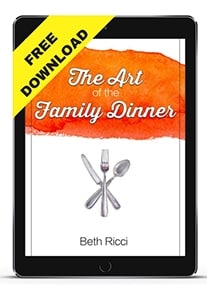
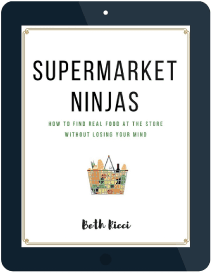







Albert Teng
I came to your website after a google search for “home remedy to get rid of streptococcus”. Your home strep throat home remedy using cayenne is new to me. Lloading up cayenne for the past 24 hours did help me gain back a little of my blurry eye sight that plagued me a few years despite all affords to reverse it. (Believe me, this is coming from strep). That’s promising and I can’t thank you more for this. I am writing this because you mention about gut health here which is a good thing because I have had severe gut problem for 11 years and spent so much on supplements, tried all kinds of diet out there, EMF therapies including rife machines, spooky2, PEMF, silver solutions, MW, Sonar, etc, etc … until I chanced upon a book called “Medical Medium – Secrets Behind Chronic and Mystery Illness and How to Finally Heal” by Anthony William. I spent a year trying to prove it wrong point by point but until today I cannot find a single fault with it. I consider myself a technical researcher capable of reading medical journal, research papers with ease but looking back if there are two books that I would recommend it would this book I just mentioned and “Liver Rescue” by the same author. Please do find the book and read it if you want to know more about gut health. Check the number of comments and accolades in Amazon. Wish I had it 5 years ago.
Jacqueline
Haha, I’m an INFP, too, can totally relate!
Hippie4ever
Absolutely! Coffee often costs more and has less benefits, unless of course you are caffeine addicted 😉